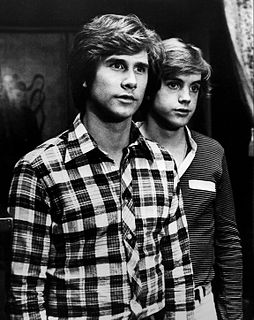A Quote by Dan Abrams
I'm not going to let people get away with either a dishonest or inaccurate premise to what we're talking about because I think that does the viewer a disturbance.
Related Quotes
I worry a lot about what people think. I worry people think I'm not helping them enough, that they don't like my music, that I'm playing a song too fast or talking too fast. I worry my wife isn't happy with our relationship... I'm afraid somebody's going to take my career away from me. That it's going to go away, or I'm going to get fired.
I've tried to get better about weighing what I think the accessibility of an idea is against the cost of executing it. I've tried to be smarter about that, because if you're not smart about that, you're going to be unemployed. But I'm still mystified about what works for people. And I'm not talking about my movies, I'm talking in general. I'm mystified by the stuff that doesn't work. I'm mystified by what's going on in the critical side, too.
I don't need to control the mind of my viewer. Now this might sound contradictory because I want to make these installations set up an environment that will produce a certain kind of experience in the viewer, but beyond a certain point, I take hands off and leave it up to chance and personal experience. So maybe it's a marriage of control and no control we're talking about where the artist produces the artifact or the environment and then walks away from it, and the second half of the equation is the viewer and their personal history and how they feel about what they're experiencing.
You can be the smartest person in the world - which Bill Clinton is, and if he's not, his wife is - and care more than anybody else in the world - which he does, I don't doubt that for a minute. And you can care so much that you're willing to be dishonest - you can tell people one thing but do another because you really know it's for their own good. And you'll still screw it all up. Because the whole premise of what you're doing is wrong!
Sex is more openly spoken about than 40, 50 years ago, and I think probably in comparison to a lot of bands - certainly other contemporary pop girl bands - we're certainly not as suggestive. We talk about sex in the way that we would to our friends. As a girl group, I think it was important not to avoid those sort of things either, because it's about confronting people's idea of what women should be talking about and how they should talk about it. There's no point in shying away from subjects like that, because they exist.
We are not talking about esthetics. We are talking about life: survival of Man. We must train young people to get another vision of Nature. We call it 'wilderness,' and we think it is progress to get further and further away from it. How crazy! Where would we have been if Nature had not built us up?
I reject criticism because the last thing I wanted was to sit there and look at people talking. I think people are conditioned to think of documentaries now as talking heads. This movie about Valentino is not about that at all. It's about watching people in action. To the critics who wanted more talking heads, I send a dozen dead roses.
[The artist's aim is] not to instruct the viewer, but to give him information... . The artist would follow his predetermined premise to its conclusion, avoiding subjectivity. Chance, taste, or unconsciously remembered forms would play no part in the outcome. The serial artist does not attempt to produce a beautiful or mysterious object but functions merely as a clerk cataloguing the results of his premise.
A lot of the pieces I've done over the years have involved alterations of scale and the idea of the viewer's relationship to the object and how we see things by either enlarging or reducing objects, it causes the viewer to look at them again. It's hard to do because our culture is so bombarded by images and media. How do you make something fresh for a viewer? That's a real challenge.






























